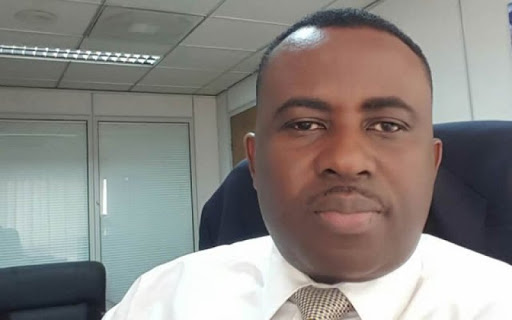Former Deputy Governor of the Bank of Ghana, Dr Johnson P. Asiama, has outlined a comprehensive strategy for "resetting" Ghana's economy, stressing the need for substantial reforms to correct structural weaknesses and foster sustainable growth.
In his opinion piece, Dr. Asiama argues that achieving a true economic reset requires fundamental changes across multiple areas, rather than incremental adjustments.
Dr. Asiama begins by stressing the importance of restoring macroeconomic stability.
He highlights the need to address key issues such as high inflation, persistent fiscal deficits, excessive debt levels, and the restructuring of state-owned enterprises (SOEs).
He notes that achieving this stability might require monetary and exchange rate policy reforms, fiscal austerity measures, and debt restructuring to reduce fiscal risks and create a stable economic environment.
The former BoG Deputy Governor further points to the necessity of deep structural reforms to enhance productivity and competitiveness.
This could involve deregulation, labour market reforms, and changes to trade policies, which he believes are essential for improving Ghana's economic framework.
Dr Asiama also noted the need for institutional reforms to strengthen the institutions that support economic activity.
He suggests that enhancing the effectiveness of the legal system, regulatory bodies, and financial institutions, along with tackling corruption and improving governance, is crucial to fostering a robust economic environment.
In the financial sector, Dr Asiama advocates for comprehensive financial sector reforms to restore stability and ensure efficient capital allocation.
These reforms might include recapitalizing banks, enhancing regulatory frameworks, resolving non-performing loans, and promoting local ownership within Ghana's financial sector.
According to him, a stable and efficient financial sector is critical for sustainable economic growth.
Highlighting the social dimension of economic development, Dr. Asiama calls for increased investment in social and human capital development.
He argues that investing in education, healthcare, and social protection systems is necessary to reduce poverty and inequality, promote overall health and education, and ensure long-term growth.
Additionally, he underscores the importance of fostering innovation and technology as a key driver of economic transformation.
Dr Asiama suggests that promoting innovation, advancing technology adoption, and supporting digital transformation can create new growth opportunities and position Ghana as a competitive player in the global economy.
Dr Asiama stresses that the concept of an economic "reset" implies a comprehensive and fundamental overhaul, rather than mere incremental improvements.
He draws historical parallels to structural adjustments in Latin America during the 1980s and 1990s, transformations in Eastern Europe post-communism, and efforts to address economic turmoil following the global financial crisis of 2008.
Dr Asiama points to the NDC’s 2024 Manifesto, which outlines a detailed "reset" agenda aimed at achieving these goals for a better Ghana.
He believes that Ghana, facing its own economic challenges, requires a similar comprehensive approach to reset its economy and secure a sustainable future.
Latest Stories
-
Syria’s minorities seek security as country charts new future
18 minutes -
Prof. Nana Aba Appiah Amfo re-appointed as Vice-Chancellor of the University of Ghana
25 minutes -
German police probe market attack security and warnings
26 minutes -
Grief and anger in Magdeburg after Christmas market attack
27 minutes -
Baltasar Coin becomes first Ghanaian meme coin to hit DEX Screener at $100K market cap
1 hour -
EC blames re-collation of disputed results on widespread lawlessness by party supporters
2 hours -
Top 20 Ghanaian songs released in 2024
2 hours -
Beating Messi’s Inter Miami to MLS Cup feels amazing – Joseph Paintsil
2 hours -
NDC administration will reverse all ‘last-minute’ gov’t employee promotions – Asiedu Nketiah
2 hours -
Kudus sights ‘authority and kingship’ for elephant stool celebration
2 hours -
We’ll embrace cutting-edge technologies to address emerging healthcare needs – Prof. Antwi-Kusi
3 hours -
Nana Aba Anamoah, Cwesi Oteng special guests for Philip Nai and Friends’ charity event
3 hours -
Environmental protection officers receive training on how to tackle climate change
3 hours -
CLOGSAG vows to resist partisan appointments in Civil, Local Government Service
4 hours -
Peasant Farmers Association welcomes Mahama’s move to rename Agric Ministry
4 hours

